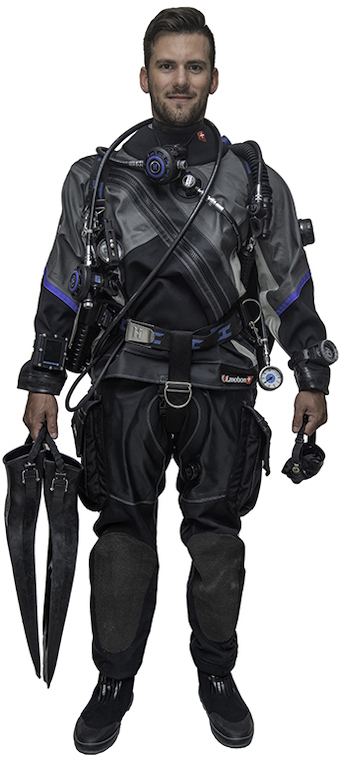In the vast and diverse world of scuba diving, there is one diving philosophy that significantly deviates from the standard model used by the majority of divers and dive agencies and is often referred to by the acronym "DIR" ("Doing It Right"). This philosophy advocates for a holistic system centered around standardized equipment, techniques, assumptions, and practices. The fundamental belief behind DIR is that a unified approach to diving reduces risk, albeit at the cost of individuality. Adherents of this philosophy argue that this standardization and emphasis on teamwork create a "better" and safer way to dive. I do not believe it can be argued otherwise, until we start to discuss to what degree is it "better" and if that degree is worth the conformance. This philosophy often violently clashes with those in the diving community who value individuality and personal freedom in their diving methods. Discussions on DIR frequently descend into heated debates that resolve nothing and convince no one.
The stringent rules and early ridicule from DIR advocates in the mid-1990s created a toxic atmosphere within the diving community, leading to its controversial reputation. In recent years, many agencies initially rooted in DIR have distanced themselves from its original rigidity, recognizing the need for flexibility and the negative impact of past attitudes. The core of DIR still emphasizes safety and standardization, but its evolution reflects a broader acceptance of diverse diving practices.
Ultimately, DIR represents a disciplined, safety-focused approach to diving, championing commonality and collaboration over individual expression. Whether one sees this as beneficial or restrictive largely depends on personal diving philosophy and values.
DIR - Doing It Right
"Doing It Right," extends far beyond just equipment specifications, though this aspect often overshadows its broader principles. Online criticism primarily focuses on the stringent equipment guidelines, overshadowing the philosophy's comprehensive nature. DIR mandates specific gear configurations:
DIR mandates specific gear configurations:- Backplate: Unpadded, made of stainless steel or aluminum, with designated slots and holes.
- Wing: Smallest size available for the gear being dove. (generally ~30lbs for single tank)
- Harness: Constructed from a single piece of webbing, free of clips or breakpoints.
- D-Rings: Exactly five, placed at specific locations on the harness.
- Regulator: DIN valves only.
- Hoses: A "long hose" primary and a "necklace" secondary
- Mask: Low volume.
- Snorkel: Absolutely not.
- Fins: Stiff "technical" shape with spring straps
- Lights: Canister primary on right hip with Goodman handle. Two backup "regular" lights on d-rings/harness.
- Computers: Not recommended. (though this is slowly changing)
- SPG: Mandatory
GUE - Global Underwater Explorers
The Global Underwater Explorers (GUE) organization is the most recognized and influential among the early "DIR" (Doing It Right) groups. The latest edition of the GUE Fundamentals of Better Diving book opens with a clarifying statement:"Over the years, "DIR" has been misused by interests that are in direct contrast to GUE's. Rather than argue about what "DIR" is or debate whose version is authentic, it is more productive to explain GUE, clarify what the organization does, and describe how divers of all levels can gain from its theory as well as its practice."
In recent years, GUE has emphasized inclusivity, welcoming all divers, even those not trained in GUE techniques, to participate in GUE-sponsored dives and social events. While a few "bad eggs" may still shame non-GUE divers, the GUE community in Chicago and the Midwest has proven to be friendly and accepting.
Within recreational diving, GUE is best known for its "Fundies" class. Despite differing opinions on GUE's philosophy, there is widespread respect for the quality of GUE training and its instructors. Any certified recreational diver who takes the Fundies class will undoubtedly enhance their skills and knowledge.
UDT - Unified Team Diving
Unified Team Diving (UTD) might be considered a 'fringe' organization in the diving world. Founded by several former GUE instructors and members, UTD generally adheres to a DIR or GUE-like philosophy but places an even greater emphasis on the "team" aspect of diving.One unique feature of UTD is its training style, which involves "coaches" rather than the traditional "instructors." This approach is designed to foster a deeper, ongoing mentor-student relationship. UTD instructors, like their GUE counterparts, are highly respected and considered among the best in the industry. Training with UTD is widely regarded as superior to many mainstream diving organizations.
Though UTD may not be as well-known as GUE, the quality of instruction and the focus on team dynamics make it a valuable choice for divers seeking to enhance their skills and safety practices.
